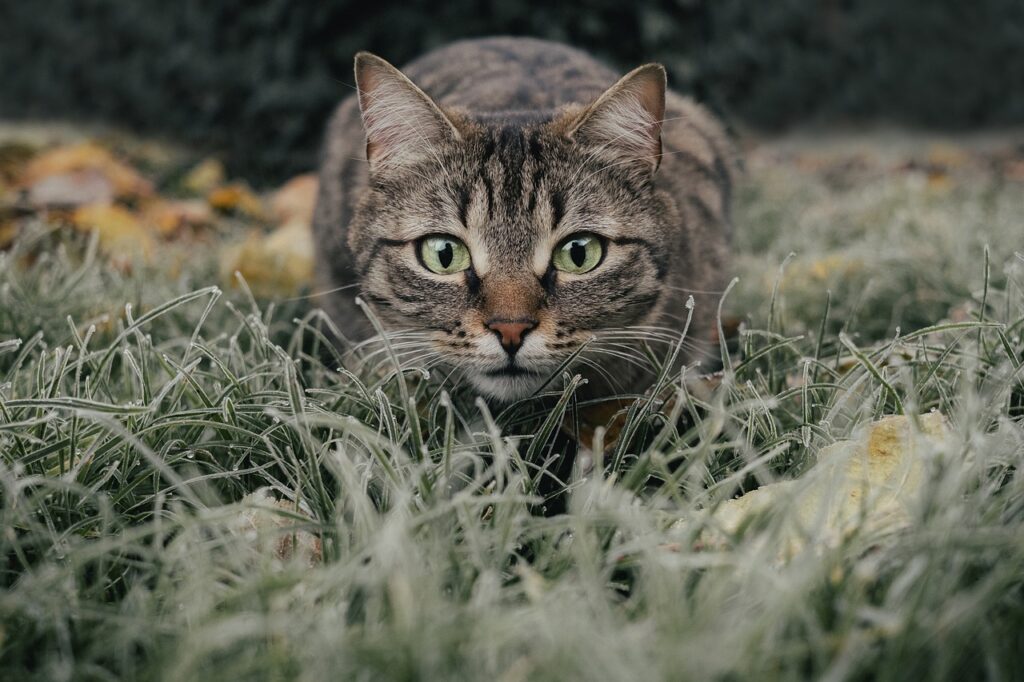Can Cats Eat Olives? – Yes, They Can
Many cat parents wonder about sharing human foods with their furry friends and olives are often a topic of curiosity. So, can cats eat olives? The answer is Yes, cats can eat olives, but there are some things to keep in mind. Unlike some human foods that are toxic to cats, olives aren’t inherently dangerous. However, they should be given in moderation and not as a regular part of a cat’s diet. Cats are obligate carnivores, meaning the bulk of their nourishment should originate from meat. Olives contain compounds that can alter your cat’s behavior – they may become more playful or excited due to a chemical similar to the one found in catnip.
Can Kittens Eat Olives?
When it comes to younger felines, the question becomes a bit more delicate. With caution, kittens can nibble on a small piece of olive. However, since their digestive systems are more sensitive and still in development, it’s better to avoid offering olives to kittens. Their diet should be carefully regulated to ensure they receive all the necessary nutrients for healthy growth, and olives simply do not meet the nutritional requirements for kittens.
Things to consider when feeding olives to kittens?
When feeding olives to kittens, consider the size of the olive relative to the kitten, the presence of pits, and the high sodium content in pickled olives that could be harmful. Always consult with a vet before introducing new foods to a kitten’s diet, and if you choose to give them olives, ensure they are plain, washed, and cut into small, manageable pieces.
Nutritional Benefits of Olives for Cats – Why Olives are Good for Cats?
Healthy Fats
Olives contain monounsaturated fats, which are considered a healthier fat option and can help maintain a healthy coat and skin.
Antioxidants
They are also a source of antioxidants that can support a cat’s immune system by combating harmful free radicals in the body.
Vitamin E
This vitamin is good for your cat’s skin and fur, and olives provide a decent amount of it, contributing to overall cat health.
Low in Sugar
Olives are low in sugar, which is beneficial for cats as they do not process sugars as humans do.
Fiber
While olives aren’t a significant source of fiber, they do contain some, which can aid in digestion for cats.
Potential Allergies: Can Cats Be Allergic to Olives?
Cats can indeed be allergic to olives, although it is uncommon. It’s important to introduce any new food into your cat’s diet gradually and to monitor for any signs of allergic reactions or digestive issues.
Symptoms of Olive Allergies in Cats
- Itchy Skin: Watch for excessive scratching or signs of discomfort in your cat after consuming olives.
- Gastrointestinal Upset: Diarrhea or vomiting can be signs of an allergy or intolerance to olives.
- Respiratory Problems: In rare cases, an allergic cat might show symptoms of respiratory difficulties.
What to Do If Your Cat Shows Symptoms?
- Discontinue Olives: If your cat shows any signs of an allergic reaction, remove olives from their diet immediately.
- Consult a Veterinarian: Seek professional advice to get the right diagnosis and treatment plan for your pet.
- Monitor Your Cat: Keep an eye on your pet for additional symptoms and record any changes in behavior or health.
Recommended Amount: How Much Olives Can a Cat Consume?
Cats should only eat olives in small amounts; think a tiny piece or a slice of an olive once in a while. Olives should be considered a treat, not a regular part of their diet. Due to the high sodium content in many olives, particularly those that are brined or pickled, giving too many olives can lead to health issues.
Things to Consider When Feeding Olives to Cats
Always ensure the olives are pitted and unsalted. Introduce them slowly into your cat’s diet to monitor for any adverse reactions. Remember, treats like olives should make up no more than 10% of your cat’s daily caloric intake.
How to Feed Olives to Cats: A Quick Guide
Olives can be an interesting treat for your cat, potentially inducing a playful response. When feeding olives to cats, it is key to do so in a safe and enjoyable manner.
Sliced Olive Treat
Cut an olive into small, bite-sized pieces, making sure there are no pits, and offer one to your cat as a rare treat during playtime.
Olive Mash-Up
Mash up a small piece of olive and mix it with your cat’s regular food to add a new flavor to their meal.
Olive Juice Drizzle
For an occasional treat, drizzle a tiny amount of olive juice (from unsalted olives) over their dry food for added interest. Remember, moderation is key!
Conclusion
Olives can be a safe and occasional snack for cats, but they should be given in moderation and under the right conditions. Ensuring the olives are free from additives and pits is essential. Always watch for any adverse reactions when offering new treats like olives and consult your vet if you are unsure. While olives can add a little variety to your cat’s life, they are no substitute for a well-balanced feline diet.



